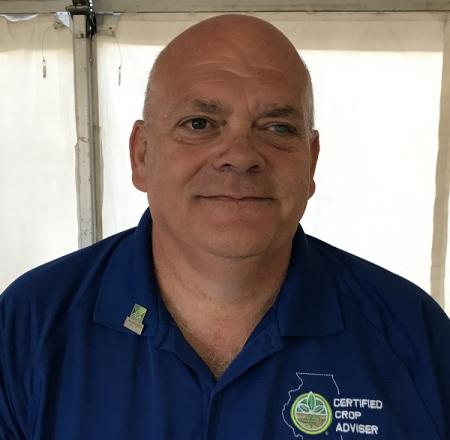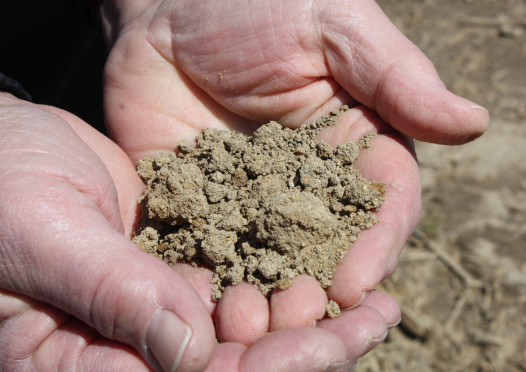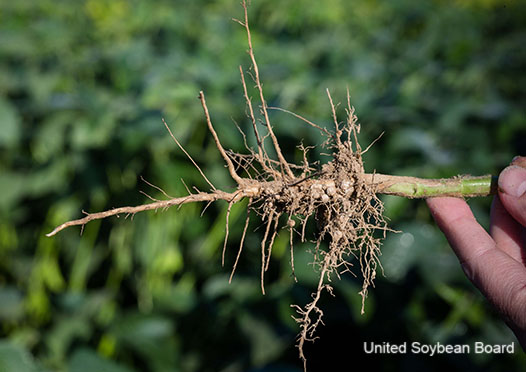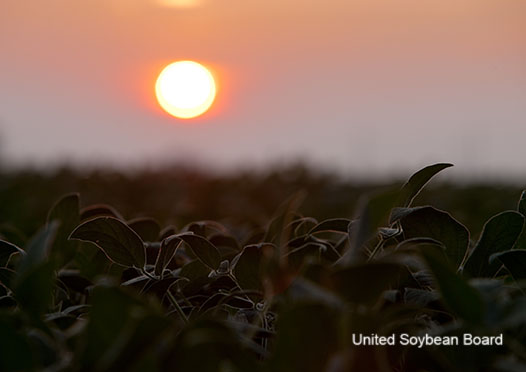ILSOYADVISOR POST
Agronomy: What does tissue testing tell us?
This past weekend I was scrolling through Twitter and came across a feed that had been started by a well-known and respected Illinois agronomist posting an article from Academia in Arkansas on the use of tissue testing as a guide for foliar nutrition applications (it’s a very good article, by the way). This started a lively debate on the merits of foliars and the value of tissue testing at all. While I do not plan to jump into that debate and sat quietly on the sidelines, I will share my opinion for what it is worth.
First, tissue testing is a great tool to give us a snapshot of what is happening in a plant at the moment the sample was taken. Results can be affected by soil moisture, growth stage, soil fertility level, soil nutrient interaction and a multitude of environmental factors. To make the best use of tissue testing you must build a baseline by taking a battery of tests and looking at trends in the field as a whole. I like to take weekly tests and see where we are going in a field. To simply look at one test and recommend a remediation may not get the best results. Some of the fields we test have been in the program for many years.
Second, I like to use tissue tests to help validate a soil nutrition program. If you have a consistently low potassium or magnesium level on a soil test, a tissue test is a good way to prove to growers that they need to give their soil fertility programs an update. Conversely, a tissue test showing a consistent deficit can indicate a need for more intensive soil testing to get to the root of the problem. These two protocols work best as a system to deliver the most benefit to a grower’s bottom line.
Next, in the article the authors discuss micro nutrients in foliar products having more positive impact on yield than macro nutrients. This just makes sense; you can’t get enough P, K, Mg, Ca or S in through the leaf surface to provide more than a short-term increase in their content in the tissue. If you are trying to bridge a gap on a slow growing crop or jump start a stressed crop that is one thing, but to replace good soil fertility completely with a foliar program will not work long term.
However, I do get a positive response in most instances from S, Zn, Mn and B with foliar applications. That in no way says I think those applications should replace micros in your soil fertility plan—those foliar applications should be made as a supplement to soil nutrition. We rarely use the interaction between nutrients as a way to make a fertility recommendation. It is my opinion that the more we understand those interactions the better advice we can give our growers. We will also do a better job of utilizing the macro nutrients like nitrogen and phosphorus. Also, don’t forget soil pH will affect micro availability more than any other factor.
Finally, the article talked about the huge number of foliar products on the market and the fact that universities cannot possibly test each and every one of them or have an opinion on each and every one. Here is where on-farm research comes in. Most farmers today have the ability to record all planting, application and harvest data, and do this not only by farm but by field. I have a great deal of respect for consultants, retailers and university researchers. Most really are trying to do the best for farmers, but they are not on YOUR farm. If there are products you want to try, pick a few and give them a shot. As I have said many times, I like a little foliar nutrition in my program. That is because I think it is just another tool in the box. It is not a cure for all ills, but a way to get maximum ROI on an acre. If it works on your farm, great, there are a lot of those products out there. If you don’t get the return you want, then you know you tried and it wasn’t for you.
Mike Wilson is a Specialty Products Marketing Coordinator at Wabash Valley Service Company. For over 20 years he has been working with farmers in ten counties in southeastern Illinois to improve economic yield in soybeans, corn and wheat. Mike has been a CCA since 1994 and is enjoying being a part of the Soy Envoy program.





Comments
Add new comment